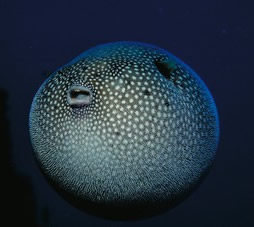Mar 21 2005
 Eating seafood containing toxic substances can have serious neurological as well as gastrointestinal effects, reveals a review in the April issue of The Lancet Neurology.
Eating seafood containing toxic substances can have serious neurological as well as gastrointestinal effects, reveals a review in the April issue of The Lancet Neurology.
In parts of the Pacific, the number of cases of marine poisoning exceeds 1200 per 100 000 people per year. Although most of the burden of marine poisoning is in rural coastal communities, many people who live outside these communities, or travel to them, are presenting to their doctors with acute or ongoing effects after eating seafood.
Geoffrey Isbister (Charles Darwin University, Darwin, Australia) and colleagues reviewed data on the neurological syndromes associated with the ingestion of common marine toxins. Their article details the three major clinical syndromes that present after the consumption of seafood containing toxic substances: ciguatera, puffer fish (tetrodotoxin) poisoning, and shellfish poisoning. Ciguatera poisoning causes both gastrointestinal and neurological effects and previous studies suggest the proportion of each type is regionally dependent. Neurological effects predominate in the Indo-Pacific region whereas gastrointestinal ones predominate in the Caribbean. Many fish have been associated with ciguatera poisoning, including large tropical fish, such as moray eels. Puffer fish poisoning results from the ingestion of fish containing tetrodotoxin and is the commonest lethal marine poisoning. It mainly occurs in southeast Asia and most commonly in Japan where puffer fish fillet (fugu) is a delicacy. Neurological effects vary depending on the severity of poisoning but can include numbness, slurred speech, incoordination, and paralysis. Shellfish poisoning makes up about 1·1% of food-borne illness in the USA. Three major neurological toxic syndromes result from shellfish poisoning—paralytic, neurotoxic, and amnesic.
Dr Isbister concludes: “Description of the common neurotoxic marine poisonings is important for increased awareness of these syndromes. However, prevention of potentially life-threatening poisoning is key and clearly, people should exercise caution whenever confronted with a plate of exotic shellfish or large tropical fish. Travellers should consult appropriate medical travel information services for region and season specific information.”